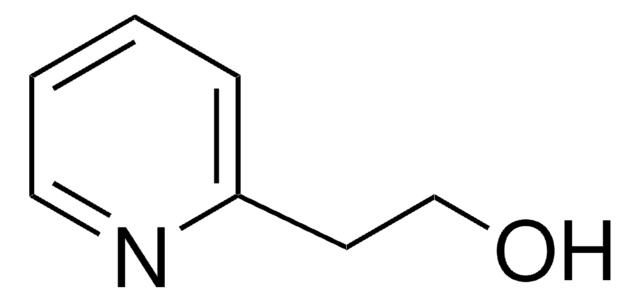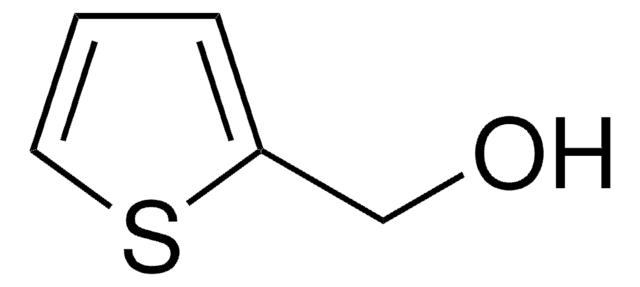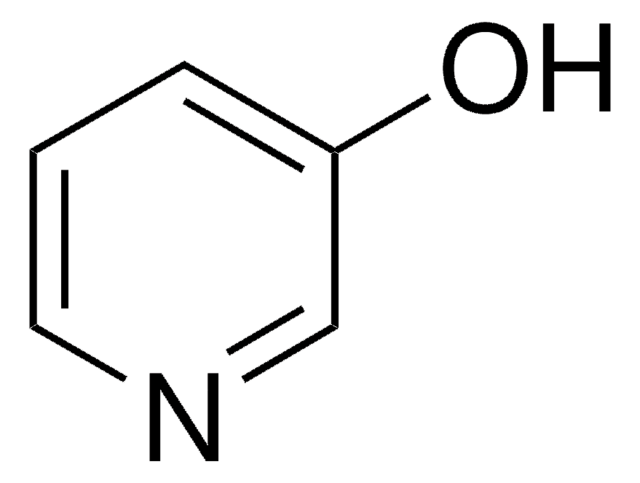P66602
2-Pyridinemethanol
98%
Synonym(s):
ω-Hydroxy-2-picoline, 2-(Hydroxymethyl)pyridine, 2-Pyridyl carbinol
About This Item
Recommended Products
Quality Level
Assay
98%
refractive index
n20/D 1.543 (lit.)
bp
112-113 °C/16 mmHg (lit.)
density
1.131 g/mL at 25 °C (lit.)
storage temp.
2-8°C
SMILES string
OCc1ccccn1
InChI
1S/C6H7NO/c8-5-6-3-1-2-4-7-6/h1-4,8H,5H2
InChI key
SHNUBALDGXWUJI-UHFFFAOYSA-N
Looking for similar products? Visit Product Comparison Guide
Physical properties
Signal Word
Warning
Hazard Statements
Precautionary Statements
Hazard Classifications
Acute Tox. 4 Oral - Eye Irrit. 2 - Skin Irrit. 2 - STOT SE 3
Target Organs
Respiratory system
Storage Class Code
10 - Combustible liquids
WGK
WGK 1
Flash Point(F)
235.4 °F - closed cup
Flash Point(C)
113 °C - closed cup
Personal Protective Equipment
Choose from one of the most recent versions:
Already Own This Product?
Find documentation for the products that you have recently purchased in the Document Library.
Our team of scientists has experience in all areas of research including Life Science, Material Science, Chemical Synthesis, Chromatography, Analytical and many others.
Contact Technical Service









